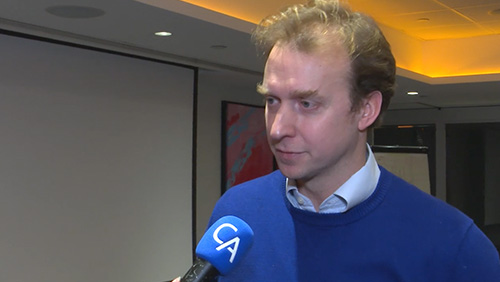In this interview with CalvinAyre.com’s Becky Liggero, Will Mace of Kindred Futures explains how collaboration and partnerships are also a viable path for start-ups.
Big businesses have always been on the hunt for the newest start-ups across the globe. Their appetite for start-ups is triggered by small-fish entrepreneur’s creativity and innovative offerings.
Finding the right marriage between bigger businesses and start-ups, however, can be tricky. Some start-ups prefer to get investments that are aligned with their industry-specific goals. Others choose to be acquired by bigger companies.
Will Mace of Kindred Group, however, believe that forging a partnership is a win-win solution for both established companies and start-ups.
He said that partnering with a company like Kindred can be a valuable route for start-ups since the company may be able to assist smaller business through their reputation, industry contacts, and bigger checkbook.
Kindered, on the other hand, benefits from start-ups creativity and innovation, according to Mace.
“We are reasonably, well-established company. We got a ton of history. We got 13 million customers. We have a hundred million marketing spent. So, we have a huge reach, we have a huge internal resources – data scientist, user-experienced researchers, legal expertise. We have lots of things that could benefit a start-up partner,” Mace told CalvinAyre.com. “It’s not altruistic, obviously. We get the opportunity to tap into the start-up market. The expertise, the creativity, the passion and it obviously gives us the opportunity to explore a little further from the core that we wouldn’t want to put.”
Mace said start-up need not to worry about collaborating with bigger firms because companies – such as Kindered – tend to have broad range of interest. Companies, according to Mace, have been desiring to work and explore the future with start-ups.
“Basically they just have to get in touch and say, ‘this is what we do and this is what we are interested in’ and have a normal conversation. I didn’t really want pitches. I’m not interested in offers: “do you want to buy it.” That’s not the model I’m interested in,” he recalled. “One company did pitch us a product and had something similar and we didn’t want it. But the guy pitching it was really interesting and clearly led us in that field and we started working with them into something related but entirely different. That’s the sort of value we can bring in not only to the operators but to start-ups.”
When asked how do they inspire and encourage their internal resources to spend time working on start-up, Mace replied: “Corporate innovation is a thorny issue. Try it, some do well, some do badly. And everybody does it entirely differently. We are lucky that we are a pretty young company and pretty entrepreneurial. Innovation is part of our company values.”
